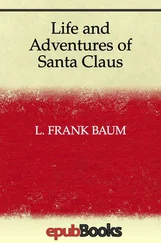Charles Dickens - Life And Adventures Of Martin Chuzzlewit
Здесь есть возможность читать онлайн «Charles Dickens - Life And Adventures Of Martin Chuzzlewit» весь текст электронной книги совершенно бесплатно (целиком полную версию без сокращений). В некоторых случаях можно слушать аудио, скачать через торрент в формате fb2 и присутствует краткое содержание. Жанр: Классическая проза, на английском языке. Описание произведения, (предисловие) а так же отзывы посетителей доступны на портале библиотеки ЛибКат.
- Название:Life And Adventures Of Martin Chuzzlewit
- Автор:
- Жанр:
- Год:неизвестен
- ISBN:нет данных
- Рейтинг книги:5 / 5. Голосов: 1
-
Избранное:Добавить в избранное
- Отзывы:
-
Ваша оценка:
- 100
- 1
- 2
- 3
- 4
- 5
Life And Adventures Of Martin Chuzzlewit: краткое содержание, описание и аннотация
Предлагаем к чтению аннотацию, описание, краткое содержание или предисловие (зависит от того, что написал сам автор книги «Life And Adventures Of Martin Chuzzlewit»). Если вы не нашли необходимую информацию о книге — напишите в комментариях, мы постараемся отыскать её.
Life And Adventures Of Martin Chuzzlewit — читать онлайн бесплатно полную книгу (весь текст) целиком
Ниже представлен текст книги, разбитый по страницам. Система сохранения места последней прочитанной страницы, позволяет с удобством читать онлайн бесплатно книгу «Life And Adventures Of Martin Chuzzlewit», без необходимости каждый раз заново искать на чём Вы остановились. Поставьте закладку, и сможете в любой момент перейти на страницу, на которой закончили чтение.
Интервал:
Закладка:
“My dear Mr Chuzzlewit,” cried Pecksniff in an ecstasy, “for such a man as you have shown yourself to be this day; for a man so injured, yet so very humane; for a man so—I am at a loss what precise term to use—yet at the same time so remarkably—I don't know how to express my meaning; for such a man as I have described, I hope it is no presumption to say that I, and I am sure I may add my children also (my dears, we perfectly agree in this, I think?), would bear anything whatever!”
“Enough,” said Martin. “You can charge no consequences on me. When do you retire home?”
“Whenever you please, my dear sir. To-night if you desire it.”
“I desire nothing,” returned the old man, “that is unreasonable. Such a request would be. Will you be ready to return at the end of this week?”
The very time of all others that Mr Pecksniff would have suggested if it had been left to him to make his own choice. As to his daughters—the words, “Let us be at home on Saturday, dear pa,” were actually upon their lips.
“Your expenses, cousin,” said Martin, taking a folded slip of paper from his pocketbook, “may possibly exceed that amount. If so, let me know the balance that I owe you, when we next meet. It would be useless if I told you where I live just now; indeed, I have no fixed abode. When I have, you shall know it. You and your daughters may expect to see me before long; in the meantime I need not tell you that we keep our own confidence. What you will do when you get home is understood between us. Give me no account of it at any time; and never refer to it in any way. I ask that as a favour. I am commonly a man of few words, cousin; and all that need be said just now is said, I think.”
“One glass of wine—one morsel of this homely cake?” cried Mr Pecksniff, venturing to detain him. “My dears—!”
The sisters flew to wait upon him.
“Poor girls!” said Mr Pecksniff. “You will excuse their agitation, my dear sir. They are made up of feeling. A bad commodity to go through the world with, Mr Chuzzlewit! My youngest daughter is almost as much of a woman as my eldest, is she not, sir?”
“Which IS the youngest?” asked the old man.
“Mercy, by five years,” said Mr Pecksniff. “We sometimes venture to consider her rather a fine figure, sir. Speaking as an artist, I may perhaps be permitted to suggest that its outline is graceful and correct. I am naturally,” said Mr Pecksniff, drying his hands upon his handkerchief, and looking anxiously in his cousin's face at almost every word, “proud, if I may use the expression, to have a daughter who is constructed on the best models.”
“She seems to have a lively disposition,” observed Martin.
“Dear me!” said Mr Pecksniff. “That is quite remarkable. You have defined her character, my dear sir, as correctly as if you had known her from her birth. She HAS a lively disposition. I assure you, my dear sir, that in our unpretending home her gaiety is delightful.”
“No doubt,” returned the old man.
“Charity, upon the other hand,” said Mr Pecksniff, “is remarkable for strong sense, and for rather a deep tone of sentiment, if the partiality of a father may be excused in saying so. A wonderful affection between them, my dear sir! Allow me to drink your health. Bless you!”
“I little thought,” retorted Martin, “but a month ago, that I should be breaking bread and pouring wine with you. I drink to you.”
Not at all abashed by the extraordinary abruptness with which these latter words were spoken, Mr Pecksniff thanked him devoutly.
“Now let me go,” said Martin, putting down the wine when he had merely touched it with his lips. “My dears, good morning!”
But this distant form of farewell was by no means tender enough for the yearnings of the young ladies, who again embraced him with all their hearts—with all their arms at any rate—to which parting caresses their new-found friend submitted with a better grace than might have been expected from one who, not a moment before, had pledged their parent in such a very uncomfortable manner. These endearments terminated, he took a hasty leave of Mr Pecksniff and withdrew, followed to the door by both father and daughters, who stood there kissing their hands and beaming with affection until he disappeared; though, by the way, he never once looked back, after he had crossed the threshold.
When they returned into the house, and were again alone in Mrs Todgers's room, the two young ladies exhibited an unusual amount of gaiety; insomuch that they clapped their hands, and laughed, and looked with roguish aspects and a bantering air upon their dear papa. This conduct was so very unaccountable, that Mr Pecksniff (being singularly grave himself) could scarcely choose but ask them what it meant; and took them to task, in his gentle manner, for yielding to such light emotions.
“If it was possible to divine any cause for this merriment, even the most remote,” he said, “I should not reprove you. But when you can have none whatever—oh, really, really!”
This admonition had so little effect on Mercy, that she was obliged to hold her handkerchief before her rosy lips, and to throw herself back in her chair, with every demonstration of extreme amusement; which want of duty so offended Mr Pecksniff that he reproved her in set terms, and gave her his parental advice to correct herself in solitude and contemplation. But at that juncture they were disturbed by the sound of voices in dispute; and as it proceeded from the next room, the subject matter of the altercation quickly reached their ears.
“I don't care that! Mrs Todgers,” said the young gentleman who had been the youngest gentleman in company on the day of the festival; “I don't care THAT, ma'am,” said he, snapping his fingers, “for Jinkins. Don't suppose I do.”
“I am quite certain you don't, sir,” replied Mrs Todgers. “You have too independent a spirit, I know, to yield to anybody. And quite right. There is no reason why you should give way to any gentleman. Everybody must be well aware of that.”
“I should think no more of admitting daylight into the fellow,” said the youngest gentleman, in a desperate voice, “than if he was a bulldog.”
Mrs Todgers did not stop to inquire whether, as a matter of principle, there was any particular reason for admitting daylight even into a bulldog, otherwise than by the natural channel of his eyes, but she seemed to wring her hands, and she moaned.
“Let him be careful,” said the youngest gentleman. “I give him warning. No man shall step between me and the current of my vengeance. I know a Cove—” he used that familiar epithet in his agitation but corrected himself by adding, “a gentleman of property, I mean—who practices with a pair of pistols (fellows too) of his own. If I am driven to borrow “em, and to send at friend to Jinkins, a tragedy will get into the papers. That's all.”
Again Mrs Todgers moaned.
“I have borne this long enough,” said the youngest gentleman but now my soul rebels against it, and I won't stand it any longer. I left home originally, because I had that within me which wouldn't be domineered over by a sister; and do you think I'm going to be put down by HIM? No.”
“It is very wrong in Mr Jinkins; I know it is perfectly inexcusable in Mr Jinkins, if he intends it,” observed Mrs Todgers
“If he intends it!” cried the youngest gentleman. “Don't he interrupt and contradict me on every occasion? Does he ever fail to interpose himself between me and anything or anybody that he sees I have set my mind upon? Does he make a point of always pretending to forget me, when he's pouring out the beer? Does he make bragging remarks about his razors, and insulting allusions to people who have no necessity to shave more than once a week? But let him look out! He'll find himself shaved, pretty close, before long, and so I tell him.”
Читать дальшеИнтервал:
Закладка:
Похожие книги на «Life And Adventures Of Martin Chuzzlewit»
Представляем Вашему вниманию похожие книги на «Life And Adventures Of Martin Chuzzlewit» списком для выбора. Мы отобрали схожую по названию и смыслу литературу в надежде предоставить читателям больше вариантов отыскать новые, интересные, ещё непрочитанные произведения.
Обсуждение, отзывы о книге «Life And Adventures Of Martin Chuzzlewit» и просто собственные мнения читателей. Оставьте ваши комментарии, напишите, что Вы думаете о произведении, его смысле или главных героях. Укажите что конкретно понравилось, а что нет, и почему Вы так считаете.









